FEATURE Brighten someone's new year with a Childrens Art calendar from MAP

Our 2020 Calendar is a great way to give someone a daily reminder of the future of our planet and it's most precious asset – our children. This beautiful calendar features art from children around the world expressing the knowledge they learned as they studied mangroves and their impact in their lives. Support MAP to showcase this important effort to raise global awareness of these critical forest habitats. Order one foryourself or as a gift to afriend. Volume discounts available on orders of 4 or more. Prices shown include shipping, so be sure to indicate if you want US domestic shipping or international shipping. You can also help by signing up to sponsor the next calendar's producyiona and shipping cost. Click Here for Details on Ordering and becoming a sponsor READ MORE 2nd FEATURE Dr. Jurgenne Honculada Primavera named Hatai Medal recipient for 2020

JAPAN – The Pacific Science Association has named Dr. Jurgenne Honculada Primavera the Hatai Medal in appreciation of her significant contribution to mangrove preservation. The Shinkishi Hatai Medal was established in 1966 by the Pacific Science Association (PSA) in honor of his leadership and contribution to science in the Pacific region. This prize awards scientists who have made great contribution to marine biology in the Pacific region. Since its establishment, the medal has been awarded every four years at the Pacific Science Congress. From the 13th award in 2016, Tohoku University took over the role of the Science Council of Japan and is taking part as the secretariat. Now the medal has the seals of the Pacific Science Association and Tohoku University. Ceremony to award the next Hatai medal will be held during the congress of the PSA in Shantou University (Guangdong Province, PRC / China) in 13-17 July 2020. Jurgenne Honculada-Primavera is a widely-cited Filipina marine scientist. For her research in mangrove ecosystem conservation she was honored as one of Time magazine's Heroes of the Environment for 2008. She was inducted into the National Academy of Science and Technology in 2015. READ MORE GLOBAL Our communities are risking their lives to defend our world

GLOBAL – Alongside the 8th UN Forum on Business and Human Rights in Geneva today, representatives from indigenous peoples, afro-descendent and peasant communities from 16 countries issued an urgent call for action – the Geneva Declaration. They are demanding governments and companies end the violence, killing and deliberate criminalisation of people defending their rights, their lands and their communities. ‘We wish to live free of violence and demand the respect for our lives and our rights! The government should not impose their visions of development on us.’ Indianara Ramires Machado, from Brazil’s Guarani-Kaiowà indigenous peoples, said today. Written by those who have seen first-hand what happens when destructive business activities are conducted with impunity at the expanding frontier of agricultural and extractive industries, the Declaration articulates the extreme challenges that they and their communities, families and peoples face. READ MORE Call to Action – Stop plundering the oceans for industrial aquaculture!
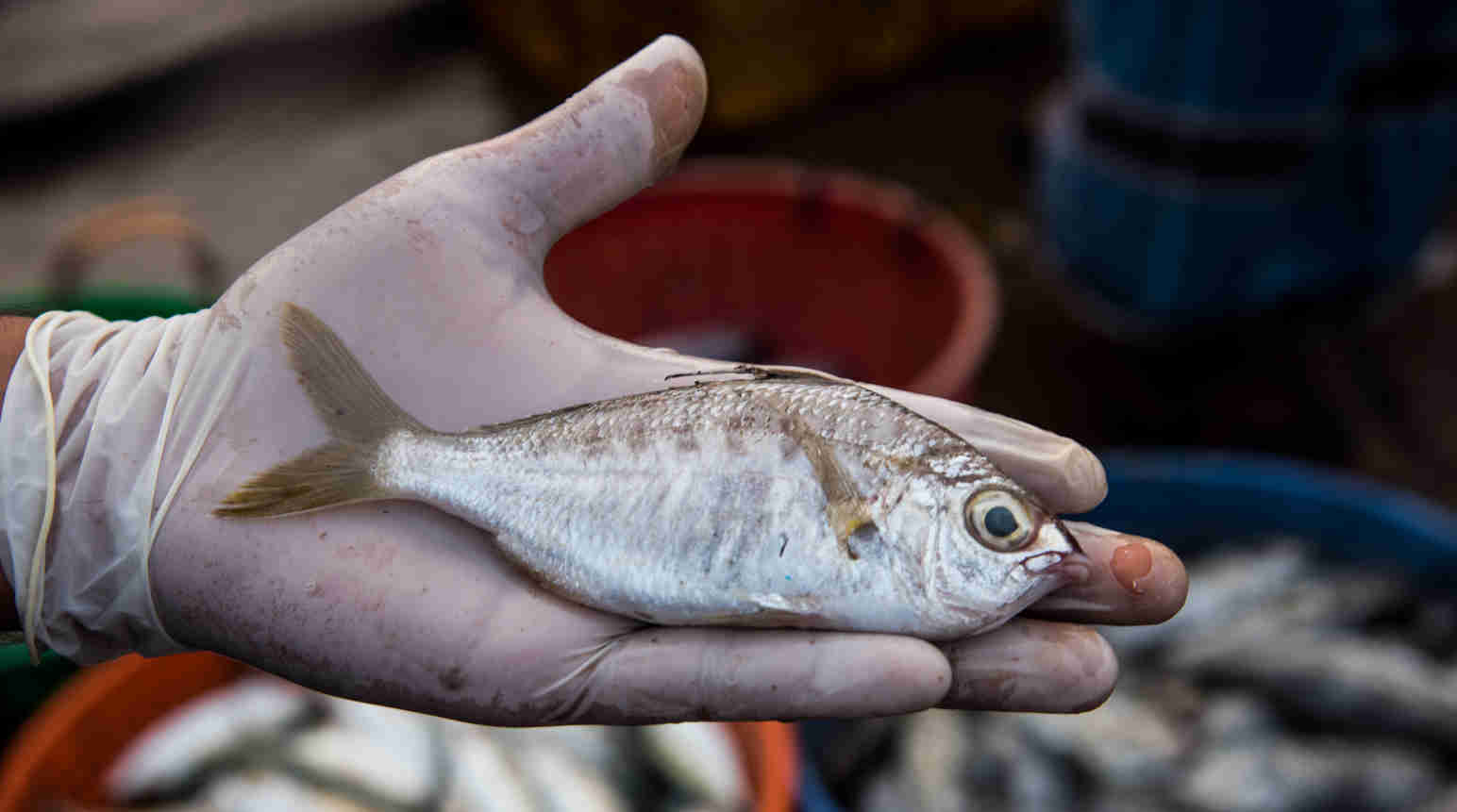
GLOBAL – Global seafood consumption has doubled over the past five decades. Every year, 80 million tons – almost half of the seafood on our plates – is produced by “aquaculture”: an industry that builds floating cages for salmon, artificial ponds for prawns on the coasts, and tanks for seafood in factory buildings – essentially, aquatic factory farms. But aquaculture is not the solution to overfishing that it is often touted to be – in fact, it is worsening the problem. Trawler fleets sweep up vast quantities of wild fish and grind them into fishmeal and fish oil to feed farmed fish. Far from being “sustainable”, this is an incredibly inefficient and wasteful process: it takes up to five kilos of edible fish such as anchovies, mackerels or sardines, for example, to produce a single kilo of salmon. More than two-thirds of the fish meal produced worldwide and three-quarters of the fish oil are now used as feed for farmed fish. READ MORE Tangled roots and changing tides
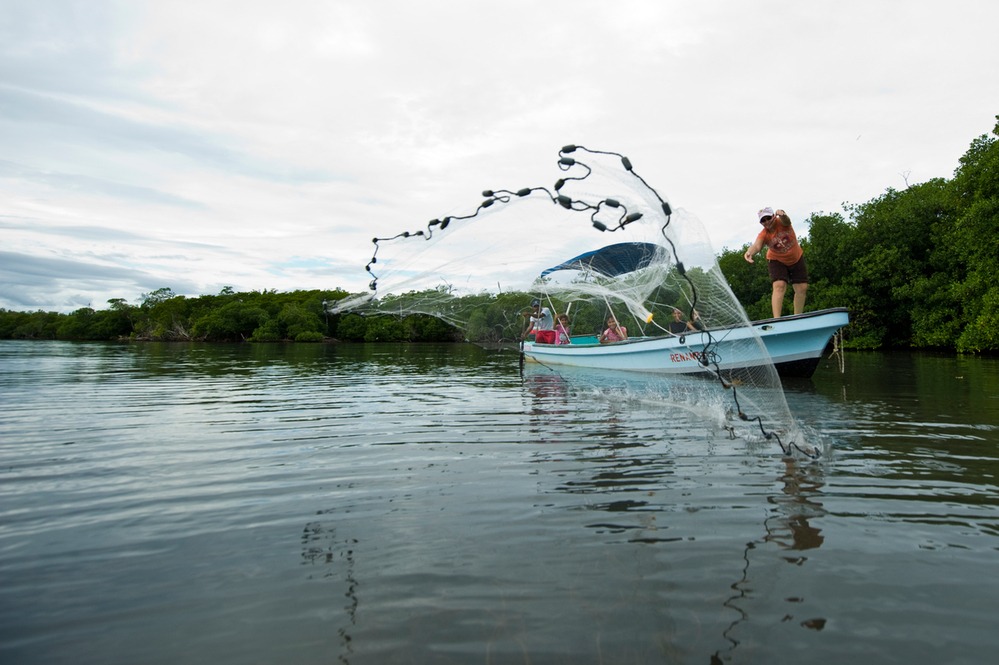
GLOBAL – Within the last few decades, scientists have raised the alert on the continuous loss of mangrove forests. It is estimated that between 1980 and 2000, 35% of mangroves worldwide disappeared. This trend has not reversed and mangroves continue to face dramatic losses which is all the more alarming because mangroves provide essential services. For instance, they play a crucial role as coastal protection and carbon sinks in the battle against climate change thanks to their location between land and sea and high carbon storage capacity, 3-5 times higher than that of upland tropical forests. They also provide habitat to support fisheries, as well as fuel and construction material, fundamental to the livelihoods of over 120 million people coastal communities across the globe. To address these challenges, Save Our Mangroves Now!, an initiative by the German Federal Ministry for Economic Cooperation and Development (BMZ), WWF and IUCN, through the IUCN Environmental Law Centre worked with lawyers from seven countries to develop a comprehensive study detailing the legal and institutional frameworks affecting mangroves, and their impact on stakeholders’ behaviour and the natural environment. READ MORE AFRICA Yelibuya, the sinking Sierra Leone island town
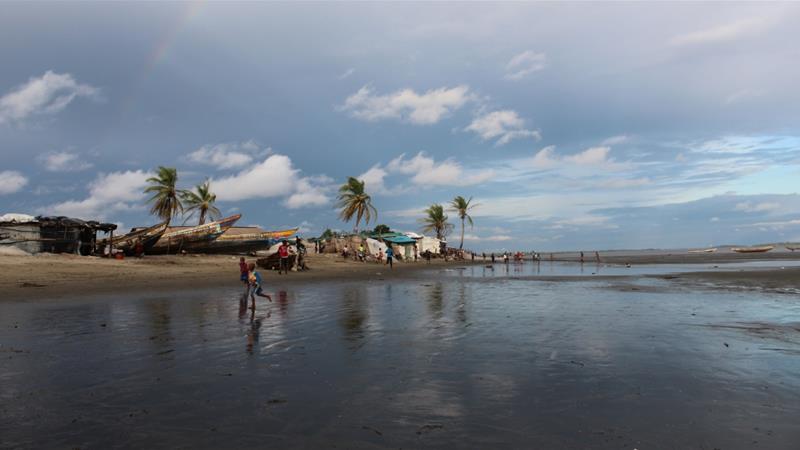
SIERRA LEONE – In the Northwest Sierra Leone’s island town of Yelibuya, some 5,000 people who live there are staring at mass displacement as the town slowly gets swallowed by one of the country’s largest rivers, the Great Scarcies, also christened Kolente, which drains into the Atlantic Ocean. Mangroves have acted as buffers between the island and river. These are a set of trees and shrubs that offer a critical ecosystem for fish and other aquatic life. But without electricity or alternative sources of energy, residents of Yelibuya have been relying on the mangroves for fuel and construction as their houses continue being swept away by the raging waters. This wanton destruction of the mangrove forests, climate change and the rising waters have contributed to the river further encroaching the inland. Despite there being no official statistics on the extent of this encroachment, community elders in the area say the waters have moved some 300 meters towards the town for the last 30 years. Now scientists insist that if the current situation persists the island will be submerged in the next two decades. READ MORE Are Nature Based Solutions the key to Africa’s climate response?

SEYCHELLES – While the UN climate talks are celebrating their 25th year, carbon emissions around the world have continued to climb. For many, that is where natural solutions could play a key role in managing a dramatic climate transition. Nature-based solutions or the process of working with and around natural ecosystems to deliver real-world benefits for climate resilience and sustainable development, took center stage on day 4 of COP25 in Madrid). Vanessa Ushie, Manager of the Policy Analysis Division at the Bank’s African Natural Resource Centre, briefed delegates at COP 25 about the Centre’s work during a panel discussion. “Nature-based solutions are easy to use, and very effective in improving community livelihoods and resilience to climate change. The AfDB is scaling up the use of nature-based solutions to address climate impacts on critical ecosystems and biodiversity in Africa,” Ushie said. “Through this program we have funded mangrove restoration and climate education programmes,” said Angelique Pouponneau, who runs a Seychelles-based trust fund focusing on climate adaptation and conservation.READ MORE AMERICAS Hurricanes Hit Puerto Rico’s Mangroves Harder Than Florida’s
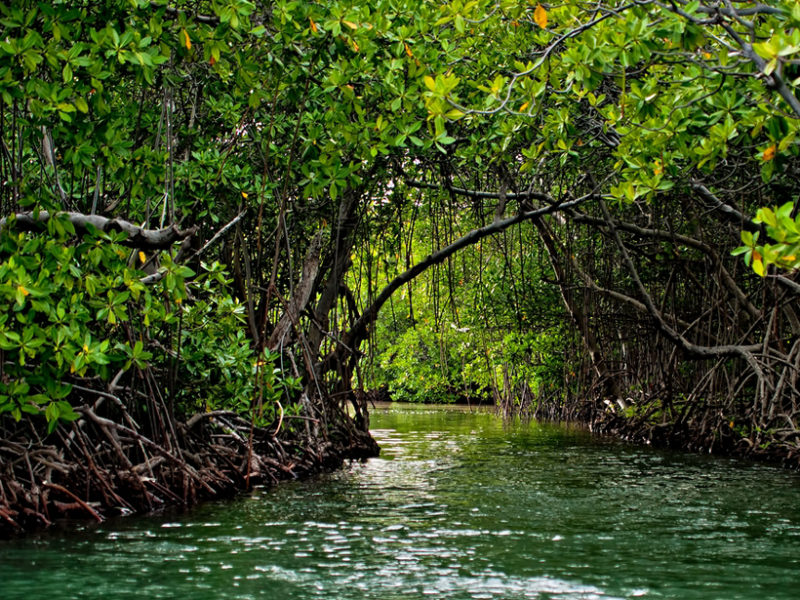
Puerto Rico’s mangrove forests sustained an average of 3 times more damage during Hurricane Maria than southern Florida’s mangrove forests did during Hurricane Irma. Both 2017 storms sheared the tops off mangrove trees in the regions’ coastal ecosystems, but Puerto Rico’s mangroves experienced a wider range of damage, possibly because of the island’s mountainous terrain. The forests “both saw higher damages as wind speed increased, but the magnitudes of those damages between Florida and Puerto Rico differ greatly,” said Vivian Griffey, lead researcher and a master’s student at the University of Washington in Seattle. “The degree to which those damages occur within the given wind speed classes differs between the different areas.” Not only did Puerto Rican mangroves lose more height on average, but there was also more variation in height loss in Puerto Rico than in Florida, she said. This variation got the researchers thinking that hurricane wind speed was not the only factor at play. Griffey presented this research recently at AGU’s Fall Meeting 2019 in San Francisco, Calif. READ MORE Let’s protect the mangroves and their taste

ECUADORE – Ecuador’s coastal city of Esmeraldas is home to a delicate ecosystem where endangered species risk losing their unique habitat, and by extension, the human population risks losing its food heritage. In a bid to mobilize the local Afro-Ecuadorian and Montubio communities to protect the region’s distinctive ecology and recognize its importance to the culture of Esmeraldas, a new Slow Food Presidium has been started. The project will involve a far-reaching collaboration between Slow Food and local small-scale producers in order to bolster the production of indigenous foods on the verge of extinction. This principle is at the heart of Slow Food Presidia, of which there are over 500 already active around the world today. “For me, eating food typical to our region means nourishing myself the same way parents did, and their parents before them. It speaks of traditions passed on down through the generations. As I eat a shell crab, ceviche or a corbiche, I realise that this is the richest inheritance I have received from my parents,” says Slow Food Presidium member Patricia Caicedo, whose mother dedicated herself to shell collecting and whose father worked as a palm grower. She is currently employed as a domestic worker in the northern part of the city. READ MORE ASIA Supertrees: Meet Indonesia’s carbon guardian
/cdn.vox-cdn.com/uploads/chorus_image/image/65882721/GOPR8057.0.jpg)
INDONESIA – Indonesia’s mangroves are an incredibly effective tool against climate change — but they’re being cut down to grow shrimp and palm oil for you. Novi Susetyo Adi is one of Indonesia’s top experts in coastal ecosystems: He studies the exquisite interconnections between mangroves, seagrass, and coral reefs. Inside mangroves, he’s tuned into the flurry of interactions between mud, water, gases, trees, and hundreds of other busy organisms. With colleagues at Indonesia’s Ministry of Marine Affairs and Fisheries, where he’s a research scientist, he’s both quantifying and preaching the benefits, or “ecosystem services,” of mangroves. The evidence, he hopes, will underlie new policies and laws that ensure the mangroves don’t disappear. With an estimated 17,500 islands and 34,000 miles of coastline, Indonesia lays claim to the most extensive mangroves on Earth — some 23 percent of the world’s total. Some of the trees are also among the world’s tallest mangroves, reaching 144 feet. Large-scale palm oil production is one of the biggest drivers of deforestation in Indonesia; tens of millions of acres of primary rainforest, peatlands, and coastal lowlands have been cleared to grow the oil-rich fruit for fuel, food, and household products for consumers around the world. (Take a look at the ingredients in your Trader Joe’s snacks and you might see palm oil — chances are it was not harvested sustainably.) Palm oil was also responsible for most of the fierce fires that burned more than 2,500 square miles in Indonesia this year; some 80 percent of the fires were set to clear land for the crop, officials told the New York Times. READ MORE
Like this newsletter?
Pease consider donating to MAP to keep it going.
Giving could never be easier | ACTION ALERTS Enough! Pledging zero tolerance to attacks against environmental and human rights defenders. SIGN THE PETITION Stop plundering the oceans for industrial aquaculture! SIGN THE PETITION TROPIMUNDO 2020-2021 applications are now open TROPIMUNDO is an EC-funded and excellence-labelled Erasmus Mundus Joint Master Degree in Tropical Biodiversity and Ecosystems. MORE INFO PETITION – NO new coal power – protect local people and wildlife!
SIGN OUR PETITION PETITION – Help stop the advance of oil palm plantations in Gabon!
SIGN THE PETITION PETITION – Don't trash coral reefs for the cruise industry! – TAKE ACTION PETITION – Sea turtles or condominiums?
Sand mining and construction work would wipe out a marine biodiversity hotspot and destroy the livelihoods of local people, who have not been consulted. Please SIGN! PETITION – Save Penang! Reject the 3-Islands Reclamation!
The lack of public consultation and detailed information about the project is shocking in view of the size of proposed reclamation which is 4,500 acres or 7 square miles
PLEASE SIGN
PETITION – Save Pulau Kukup National Park – second largest mangrove island in the world. Sign The Petition Like this newsletter? Pease consider donating to MAP to keep it going. Giving could never be easier 
69 million tons of carbon stored thanks to mangrove restoration, as demonstrated by the new Mangrove Restoration Map VIEW MAP HERE 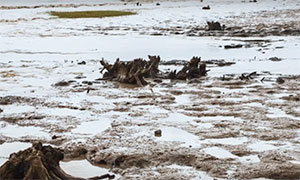
Restoring The Natural Mangrove Forest
Watch movie 
Community Based Ecological Mangrove Restoration in Rufiji Delta VIEW VIDEO Video: Mangroves for the Future – A look bacK. As the latest phase of Mangroves for the Future (MFF) draws to a close, this video highlights some of the project’s most successful initiatives – from local women supporting national park management in Viet Nam to an island in the Maldives that has become a model for waste management, and everything in between. View Here WANT TO GET INVOLVED?
Follow and Join MAP!
   
Like this newsletter? Pease consider donating to MAP to keep it going. Giving could never be easier 

VOLUNTEER OPPORTUNITY 
MANGROVE ISSUES Want to learn more about mangroves?
Our short presentation will give you a better understanding of the issues we are working to solve. WATCH PRESENTATION What is CBEMR? Easy to follow fact sheet – CLICK HERE What is EPIC? – The Ecosystems Protecting Infrastructure and Communities (EPIC) project: the role of ecosystems as protective barriers against climate induced hazards MANGROVES APP AVAILABLE
A pictorial field guide for easy identification of various mangrove species and learning about the mangroves ecosystem. CLICK HERE View MAP’s uploaded Videos at MAPmangrover’sChannel
Question Your Shrimp Consumer/Markets Campaign!
WATCH VIDEO Mangrove Restoration in Asia – Watch Short Video The Value of Mangrove Forests View Video CBEMR Experience Exchange MAP 2017 English Subtitles
VIEW THE VIDEO Mangroves: Guidebook to Malaysia – Click Here
Mangrove rehabilitation in Asia – Local Action and cross-border Transfer of Knowledge for the Conservation of Climate, Forests and Biodiversity VIEW VIDEOS HERE SHARE MAP'S VISION
CLICK HERE to watch short introductory video. Together we can work "at the roots of the sea". Our short documentary, Reducing the Risk of Disaster through Nature-Based Solutions : Mangroves
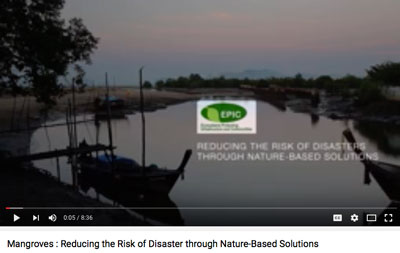
Exclusive Interview with Alfredo Quarto, Co-Founder and Executive Director of Mangrove Action Project – See more
Marvellous Mangroves Curriculum The Marvellous Mangroves Education Forum is an online hub for those utilizing the Marvellous Mangroves (MM) Curriculum. It gives students, teachers and anyone interested in mangroves, the opportunity to learn and share ideas themed around the curriculum, to connect and communicate with others around the globe whilst exploring mangroves from your computer or on the go. VISIT 
The award-winning Marvellous Mangroves (MM) curriculum educates children on the importance of mangroves and their ecological functions, teaching them about modern challenges and mechanisms for sustainability. VIEW VIDEO Marvellous Mangroves Curriculum in Bangladesh – WATCH VIDEO
MARVELLOUS MANGROVES IN BRAZIL
En Portuges 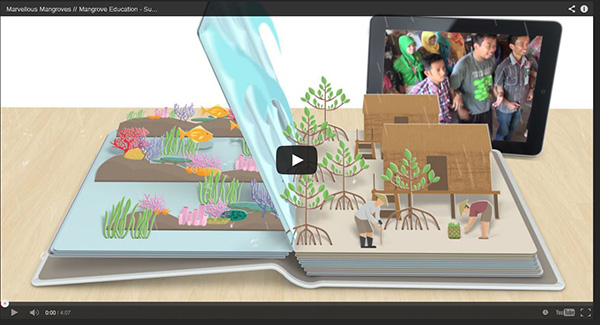
Marvellous Mangroves – A Curriculum-Based Teachers Guide. FOR MORE ON MAPs AWARD WINNING CHINA MANGROVE CURRICULUM VISIT

VIMEO SHOW
VISIT OUR "MM" WEBPAGE Check out our presentation for more details on Marvellous Mangroves Read this 10 page history of the development of MAP’s educational curriculum VIEW DOCUMENT
Article in Canada's Green Teacher Magazine – Read More
Like this newsletter? Pease consider donating to MAP to keep it going. Giving could never be easier 
Green Planet Fundraising Assists MAP – LEARN MORE
Volunteer Opportunities with Mangrove Action Project CLICK HERE
"Question Your Shrimp" Campaign Question Your Shrimp- Don't Buy or Sell Imported Tropical Shrimp! Sign the Petition Learn more about the affects of the shrimp industry on mangroves by visiting our blog
Editor’s Note: Mangrove Action Project’s Executive Director, Alfredo Quarto was interviewed about shrimp by Green Acre Radio’s Martha Baskin
LISTEN TO INTERVIEW Sign the Consumer's Pledge to avoid imported shrimp
Not yet a MAP News subscriber?
Click here to subscribe. Note to Our Readers: We strive to keep active links in our newsletter. However, due to circumstances beyond our control, occasionally links to stories may become broken. If you find a link to a story is not functioning, please cut and paste the headline into your browser search bar. In most cases you should be able to locate the original story.
|










/cdn.vox-cdn.com/uploads/chorus_image/image/65882721/GOPR8057.0.jpg)













